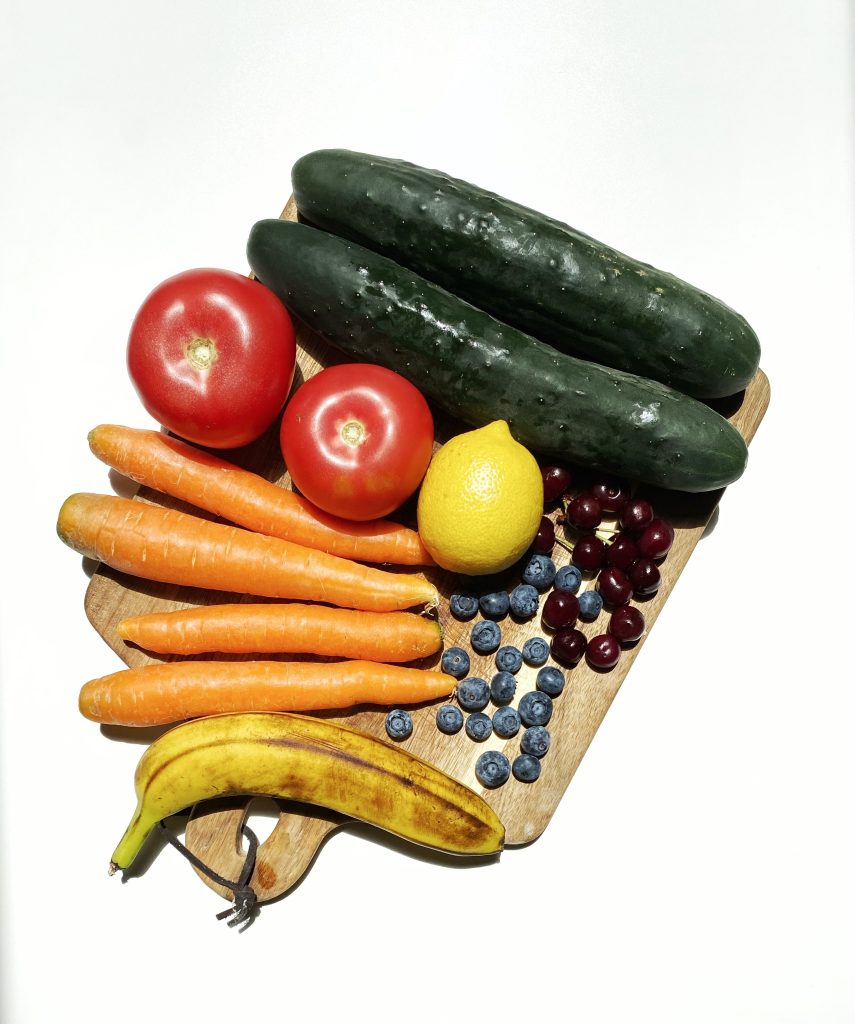Eating healthy on a budget is possible, even if it may seem challenging at first. With a little planning and effort, you can stock your kitchen with nutritious foods that won’t break the bank. Here are some tips:
1. Plan your meals ahead of time.
One of the best ways to save money on food is to plan your meals ahead of time. This will help you avoid impulse purchases at the grocery store and ensure that you have all the ingredients you need on hand. When you’re meal planning, be sure to include a variety of foods from all food groups to ensure that you’re getting the nutrients you need.
Here are some tips for meal planning on a budget:
- Choose recipes that use inexpensive ingredients, such as beans, lentils, tofu, and whole grains.
- Cook in bulk so that you have leftovers for lunch or dinner the next day.
- Freeze leftovers for quick and easy meals on busy weeknights.
2. Buy seasonal produce.
Fruits and vegetables are a great source of vitamins, minerals, and fiber. They’re also one of the most expensive items on the grocery list. To save money, buy seasonal produce whenever possible. Seasonal produce is typically fresher and cheaper than out-of-season produce.
If you’re not sure what’s in season, check your local farmers market or grocery store website. Many grocery stores also have weekly flyers that list seasonal produce items and their prices.
3. Buy in bulk.
If you have the space, buying in bulk can save you money on many non-perishable items, such as rice, beans, pasta, and canned goods. Just be sure to check the expiration dates before you buy anything in bulk.
You can also buy in bulk at warehouse clubs, such as Costco and Sam’s Club. However, keep in mind that you’ll need to pay a membership fee to join these clubs.
4. Cook at home more often.
Eating out can be expensive, especially if you do it often. Cooking at home is a great way to save money and eat healthier. When you cook at home, you can control the ingredients and portion sizes.
If you’re short on time, there are many quick and easy recipes that you can make at home. You can also find many healthy and affordable recipes online and in cookbooks.
5. Don’t be afraid to freeze leftovers.
Freezing leftovers is a great way to save money and reduce food waste. You can freeze leftovers for up to a few months, depending on the food.
When you’re ready to eat frozen leftovers, simply thaw them in the refrigerator overnight or reheat them in the microwave or oven.
6. Grow your own food.
If you have the space, growing your own food can be a great way to save money and eat healthier. You can grow fruits, vegetables, and herbs in your backyard, on your patio, or even in your kitchen.
If you’re not sure where to start, there are many resources available online and at your local library. You can also find many gardening clubs and workshops in your community.
7. Get creative with your meals.
Don’t be afraid to get creative with your meals. There are many ways to make healthy and affordable meals. For example, you can make your own hummus instead of buying it pre-made. You can also make your own yogurt or granola.
There are also many websites and cookbooks that offer tips and recipes for healthy and affordable meals.
Here are some sample meal plans on a budget:

Breakfast:
- Oatmeal with berries and nuts
- Yogurt with fruit and granola
- Eggs with whole-wheat toast and avocado
- Peanut butter and banana sandwich on whole-wheat bread
Lunch:
- Salad with grilled chicken or fish
- Lentil soup with whole-wheat bread
- Leftovers from dinner
- Tuna salad sandwich on whole-wheat bread
Dinner:
- Chicken stir-fry with brown rice
- Spaghetti with meatballs and vegetables
- Salmon with roasted vegetables
- Lentil soup with whole-wheat bread
Snacks:
- Fruits and vegetables
- Nuts and seeds
- Yogurt
- Hard-boiled eggs
By following these tips, you can eat healthy on a budget. With a little planning and effort, you can stock your kitchen with nutritious foods that won’t break the bank:
- Shop at discount grocery stores. Many discount grocery stores offer fresh produce, meat, and dairy products at lower prices than traditional grocery stores.
- Use coupons and promo codes. There are many ways to save money on groceries, such as using coupons and promo codes. You can find coupons in newspapers, magazines, and online. You can also sign up for loyalty programs at your favorite grocery stores to earn rewards and discounts.
- Cook at home with friends and family. Cooking with friends and family is a great way to save money and have fun. You can share the cost of ingredients and prepare meals together.
- Take advantage of free food resources. Many communities offer free or low-cost food resources, such as food banks and soup kitchens. If you’re struggling to afford food, don’t be afraid to reach out for help.
Here are some additional tips for saving money on groceries:
- Shop the perimeter of the grocery store. This is where you’ll find the freshest and healthiest foods, such as fruits, vegetables, meat, and dairy products.
- Compare prices before you buy. Don’t just grab the first item you see. Take the time to compare prices between different brands and sizes.
- Buy generic brands. Generic brands are often just as good as name brands, but they cost less.
- Avoid processed foods. Processed foods are often high in sugar, salt, and unhealthy fats. They’re also expensive. Instead, focus on buying whole, unprocessed foods.
Eating healthy on a budget is possible with a little planning and effort. By following the tips above, you can stock your kitchen with nutritious foods that won’t break the bank.







